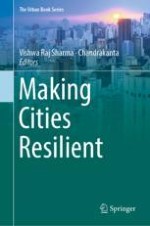2019 | OriginalPaper | Chapter
21. An Evaluation of Sustainable Tourism in the Developing Countries of Asia Using a Sustainable Tourism–Measurement Model: A Comparison of India, Malaysia, and Thailand
Authors : Vijay Pandey, Vishwa Raj Sharma
Published in: Making Cities Resilient
Publisher: Springer International Publishing
Activate our intelligent search to find suitable subject content or patents.
Select sections of text to find matching patents with Artificial Intelligence. powered by
Select sections of text to find additional relevant content using AI-assisted search. powered by
